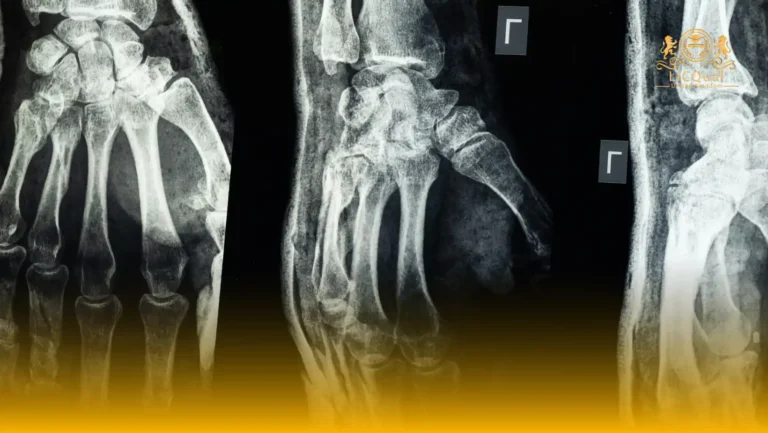The LICQual Level 7 Postgraduate Diploma in Healthcare Informatics and Data Security is a prestigious and advanced qualification designed for experienced healthcare professionals seeking to enhance their expertise in managing healthcare data securely and efficiently. This qualification is ideal for learners who wish to strengthen their career prospects, deepen their knowledge in healthcare informatics, and further their Continuing Professional Development (CPD) in a rapidly evolving sector.
Healthcare data management is a critical component of modern healthcare systems. This course equips learners with advanced skills in data governance, cybersecurity, digital health systems, and information management, enabling them to make informed decisions, implement robust security protocols, and ensure compliance with international data protection standards. Through a combination of theoretical knowledge and practical application, learners gain the competencies needed to lead data-driven initiatives and safeguard sensitive patient information.
Centres delivering this qualification are required to maintain high standards of education. This includes employing competent and qualified staff, providing all necessary learning materials and resources, and creating an environment that promotes learner engagement and success. By ensuring these quality standards, learners benefit from a supportive and professional learning experience that maximises their potential and prepares them for leadership roles in healthcare informatics and data security.
Enrolling in this programme positions learners at the forefront of healthcare innovation, preparing them to contribute strategically to the digital transformation of healthcare organisations while ensuring the highest standards of data integrity and security.
Course Overview
Qualification Title
LICQual Level 7 Postgraduate Diploma in Healthcare Informatics and Data Security
Total Units
6
Total Credits
120
GLH
600
Qualification #
LICQ2200819
Qualification Specification
To enroll in the LICQual Level 7 Postgraduate Diploma in Healthcare Informatics and Data Security, applicants must meet the following criteria:
|
Qualification# |
Unit Title |
Credits |
GLH |
|---|---|---|---|
|
LICQ2200819-1 |
Healthcare Data Management and Governance |
20 |
100 |
|
LICQ2200819-2 |
Health Informatics Systems and Digital Health Technologies |
20 |
100 |
|
LICQ2200819-3 |
Cybersecurity in Healthcare |
20 |
100 |
|
LICQ2200819-4 |
Advanced Data Analytics for Healthcare |
20 |
100 |
|
LICQ2200819-5 |
Research Methodologies and Evidence-Based Practice |
20 |
100 |
|
LICQ2200819-6 |
Strategic Leadership in Healthcare Informatics and Data Security |
20 |
100 |
By the end of this course, learners will be able to:
Unit 1: Healthcare Data Management and Governance
By the end of this unit, learners will be able to:
- Critically evaluate healthcare data management frameworks and governance models.
- Assess regulatory and legal requirements, including GDPR and HIPAA, in healthcare data handling.
- Apply ethical principles to the management of patient information.
- Develop strategies to ensure data quality, integrity, and compliance within healthcare organisations.
Unit 2: Health Informatics Systems and Digital Health Technologies
By the end of this unit, learners will be able to:
- Analyse the role and functionality of electronic health records (EHRs) and digital health systems.
- Evaluate emerging digital health technologies and their impact on patient care and operational efficiency.
- Design effective implementation plans for health informatics solutions in healthcare settings.
- Critically assess the challenges and opportunities of integrating digital systems in clinical workflows.
Unit 3: Cybersecurity in Healthcare
By the end of this unit, learners will be able to:
- Identify cybersecurity threats and vulnerabilities specific to healthcare information systems.
- Apply risk assessment and mitigation strategies to safeguard healthcare data.
- Implement encryption, access control, and other security protocols to protect patient information.
- Develop incident response plans for data breaches and security threats.
Unit 4: Advanced Data Analytics for Healthcare
By the end of this unit, learners will be able to:
- Apply statistical methods and analytical techniques to healthcare data.
- Conduct predictive analytics and data mining to support evidence-based decision-making.
- Interpret complex datasets to inform strategic planning in healthcare organisations.
- Evaluate the role of machine learning and AI in improving healthcare outcomes.
Unit 5: Research Methodologies and Evidence-Based Practice
By the end of this unit, learners will be able to:
- Design and implement research studies using quantitative and qualitative methods.
- Critically appraise research literature to support evidence-based practice.
- Apply research findings to enhance healthcare informatics and data management strategies.
- Demonstrate ethical considerations in the conduct and reporting of research.
Unit 6: Strategic Leadership in Healthcare Informatics and Data Security
By the end of this unit, learners will be able to:
- Develop strategic plans for healthcare informatics and data security initiatives.
- Apply leadership and change management principles to healthcare projects.
- Evaluate organisational policies and procedures to enhance data security and compliance.
- Lead teams in implementing digital healthcare solutions and promoting a culture of data integrity.
This advanced qualification is designed for experienced healthcare professionals, managers, and strategic leaders who wish to enhance their expertise in healthcare planning, policy, and organisational management. Learners who should enrol include:
- Healthcare Managers and Administrators seeking to develop and implement effective strategic plans.
- Clinical Leaders and Senior Practitioners aiming to enhance operational efficiency and service delivery.
- Policy Makers and Health Strategists involved in designing, implementing, or evaluating healthcare policies.
- Experienced Professionals in Healthcare Operations committed to improving organisational performance and patient outcomes.
- Aspiring Healthcare Executives looking to lead strategic initiatives and influence decision-making at a senior level.
- Practitioners Committed to Continuing Professional Development (CPD) who wish to integrate advanced strategic knowledge into their professional practice.
By enrolling in this programme, learners will acquire the knowledge, skills, and professional recognition required to lead strategic initiatives, optimize healthcare services, and drive innovation and excellence within healthcare organizations.
Centres delivering the LICQual Level 7 Postgraduate Diploma in Healthcare Informatics and Data Security must meet the following requirements to ensure high-quality education and learner success:
- Qualified and Competent Staff: Centres must employ experienced and qualified trainers with expertise in healthcare informatics, data security, and postgraduate-level teaching. Trainers should be capable of delivering advanced theoretical knowledge and practical skills.
- Comprehensive Learning Resources: Centres must provide learners with access to up-to-date study materials, digital health software, data analytics tools, cybersecurity platforms, and other necessary learning aids.
- Modern Learning Environment: Facilities should include fully equipped classrooms, computer labs, and access to secure IT infrastructure to support practical training and simulations.
- Assessment and Feedback Systems: Centres must implement robust assessment procedures, including formative and summative evaluations, to monitor learner progress and provide timely, constructive feedback.
- Support for Continuing Professional Development (CPD): Centres should foster a learning culture that encourages professional growth, reflective practice, and the application of learning to real-world healthcare settings.
- Compliance and Quality Assurance: Centres must adhere to national and international educational standards, maintain accreditation, and ensure all policies and procedures align with best practices for learner safety, data protection, and academic integrity.
- Technology and Accessibility: Centres must ensure reliable internet access, secure data management systems, and accessibility provisions to enable all learners to fully engage with the course content.
By fulfilling these requirements, centres create a professional, supportive, and high-quality learning environment that maximises learner engagement, skill development, and career advancement in healthcare informatics and data security.
Assessment and Verification
All units within this qualification are subject to internal assessment by the approved centre and external verification by LICQual. The qualification follows a criterion-referenced assessment approach, ensuring that learners meet all specified learning outcomes.
To achieve a ‘Pass’ in any unit, learners must provide valid, sufficient, and authentic evidence demonstrating their attainment of all learning outcomes and compliance with the prescribed assessment criteria. The Assessor is responsible for evaluating the evidence and determining whether the learner has successfully met the required standards.
Assessors must maintain a clear and comprehensive audit trail, documenting the basis for their assessment decisions to ensure transparency, consistency, and compliance with quality assurance requirements.







